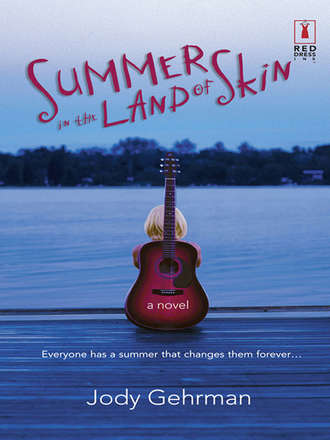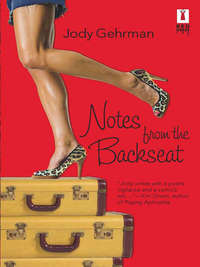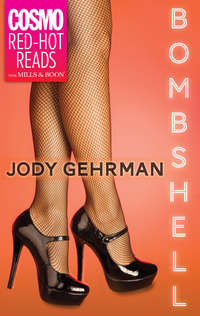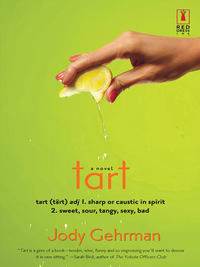
Полная версия
Summer in the Land of Skin
“Chet,” Bender says. His face is as pink as boiled ham. “He had the godamndest way with words!” He yanks a handkerchief from his back pocket and runs it over his face twice in rapid succession. His fingers wander to the buttons on his shirt, making sure they’re still fastened. “What are you looking at?” he mumbles, patting at his wild, half-greased hair.
In that moment, I like him with such force, I can hardly keep myself from blurting out something stupid.
He saves us from any maudlin show of emotion by gripping his beer a little harder (I can see the fresh dents taking shape under his fingers) and getting businesslike. His voice goes gruff and vaguely paternal. “Listen, I’d like to help you. I would. I can see you’re in a spot. The thing is, I don’t have a pot to piss in. I unload more stuff every day. I’m even thinking about selling this old rowboat and getting a motorcycle. I got some bills and…you know, things stack up. I might need to be mobile.” Here he pauses, licks his lips. “I’m in no position, is what I’m saying…”
“When did you stop?” I ask.
“Stop what?”
“Being a luthier?”
He smiles sadly and fishes a toothpick from his pocket. He uses it to poke at his gums somewhere deep in the recesses of his mouth, then lets it dangle from his lips. “I never stopped being a luthier,” he says.
“So you still make guitars?”
He takes the toothpick from his mouth and runs the tip of it under his thumbnail. “Need a shop for that. I mean it’s in me, is all. Certain things you can’t shake,” he says, wiping his mouth.
Caliban is hovering again, suspended above the water with his enormous wings splayed out, feathers trembling in the light breeze. We watch him, his beak poised like a spear, his beady eyes fixed on something below. “What would it take,” I say cautiously, “to get you back in business?”
He snorts, snaps the toothpick in half. “A lot,” he says. “More than you can—” He stops, midsentence.
I turn and he’s staring at me with his mouth clamped shut, his eyes burning. “What? Did I say something wrong?”
“Is your mother involved in this?” he asks, slowly and deliberately.
“My mother? No, I told you, Rosie’s—”
“Is Helen in any way, shape or form behind this? I want to know.”
“Sh-she doesn’t even know I’m—” I stammer, but he’s tossing his can down and stomping on it. The boat rocks violently.
“I’m not a goddamn charity case, and you can tell her I said that.”
“Tell who?”
“Don’t give me that! I see it, now. Helen sends her spawn to—”
“But my mother doesn’t even know I’m—”
“I hear she’s doing pretty good now. She can afford a wind-up derelict. I see she hasn’t lost her bleeding heart!”
“I don’t know what you’re talking about,” I say, but it’s like he can’t hear me—the wheels in his brain are turning too fast. “My mother never even mentioned your name!” I say, raising my voice.
I’ve stumbled upon the password; his rage dissolves.
He makes a futile attempt to smooth his hair down again, turning away from me. “No,” he says, softly. “Of course she didn’t. How stupid of me.”
“Rosie’s the one who told me about you,” I add cautiously.
“Right,” he mumbles, sitting down on the ice chest. “You said that….”
“I did.”
“Listen.” He scowls out at the water. “Why don’t you just tell me why you’re still here?”
I take a deep breath. “I was hoping you’d change your mind,” I say softly. “About teaching me.”
“It’s got nothing to do with my mind,” he says. “I’ve got no shop, no money. I don’t know how else to say it. Go back to San Francisco, find someone there—”
“I’m not going back.” My tone is icy.
He hesitates. “Well, what do I know?” he says to the bay.
“You want me to leave you alone?” I ask, when the silence has gone on too long.
He takes his handkerchief out and blows his nose with tremendous volume. Caliban flaps away across the water. He watches, his face expressionless, and shoves the handkerchief back into his pocket.
“I’m not much company,” he says.
“I’m sorry,” I mumble, standing.
“Don’t be.”
I step from his boat onto the dock carefully, feeling my headache again. The clouds have moved in full force, though there are still a few stray beams of sunlight leaking through here and there. Bender stays seated on the ice chest, his back to me. His hair matches the color of the clouds. I want to say something so the moment won’t seem so amputated, but nothing comes to me.
I have my hand on the gate when I hear him say, “Medina.” I turn around. He gets up from the ice chest and heads toward the cabin. “Hold on a minute,” he says. “I’ll be right back.”
I walk back to his boat, and in a little while he reappears with a paper towel in his hand. He hands it to me. There’s red ink scribbled across it, barely legible. Dr. Riley Evans, it says, and beneath that is a local phone number.
“Guy I used to know,” he says. “Teacher up at Western. Musicology or something. He knows everyone around here—see if he can hook you up. You got a degree?” I nod. “Maybe he’s got some research you could do. No guarantees, but you could give it a shot.” I try to look grateful. “Tell him your name. It means something to guys like him.”
“Because of Dad?”
He picks up a scrap of toast lying on the floor of the boat and tosses it to a seagull, who catches it midair. “You just tell him who you are. You’ll see what I mean.”
We’re playing pool at the Station Pub with Arlan and Bill that night when Lucy mentions Grady Berlin for the first time. “Grady called today,” she tells Arlan. “He’s coming home in a couple weeks.”
“No shit,” Arlan says, sounding happy as a kid. “Is he really?”
I take my shot—a difficult one I’m sure I won’t make—and miraculously the 4-ball sinks gently into the corner pocket. I try not to look overly proud of myself and move around the table slowly, assessing my next move.
“Nice,” Lucy tells me. “You’re getting better.”
“Grady the tree hugger?” Bill says.
“He’s an arborist, asshole.”
Bill takes a long drink of beer, burps quietly and says, “Lucinda, what have I done to make you so hateful?”
“Don’t flatter yourself. I wouldn’t waste hatefulness on you.”
I take another shot, an easy one this time, perfectly lined up, and miss.
Arlan steps up to the table and sinks five balls in a row. His face is tight with concentration as he moves about, but his body is loose, leaning over and lining up his cue with the ease of a practiced shark.
“Who’s Grady Berlin?” I ask.
Bill looks at me in surprise. “You don’t know Grady?”
I drink my beer and shake my head.
“No,” Lucy says. “Of course not. He left for Argentina way before she showed up.” She turns to me. “Grady’s the guy you’ll fall in love with,” she tells me. Then she looks over my shoulder and adds, “Oh. Arlan fucked up. Your shot.”
Almost a full week passes before I get a chance to meet with Dr. Riley Evans. It’s summer, so the university is in slow motion, which makes it frustrating tracking him down. I reach him by phone Friday afternoon.
“Anna, you say? Fine, well, let’s see—not that god-awful mandolin again! Good Christ, what have you done to—” and here he drops the phone a moment, before returning, a little out of breath, and laughing. “Who’s this? Right, Anna— Monday, then? Say noon?”
I show up at his office five minutes early, and he appears twenty minutes later, carrying a fake leather briefcase and trailing a long piece of string from his shoe. He’s a slim, lip-licking type with flaky dry skin around his mouth and eyes. His hair is a brown bowl atop his head. He lets us into his office, settles himself behind an enormous desk piled high with books, and points to a chair in the corner for me. I move it slightly so I can see around the chaos of his desk to his enormous, fishlike eyes.
“Well then, what seems to be the problem, Amy? Worried about the midterm?”
“My name’s Anna,” I say. “And actually, I’m not a student.”
He pauses, a little thrown by this—I’ve veered from the script on my first line. He leans back in his leather chair, brings his hands up close to his face and taps the tips of his fingers together rapidly. “Not a student?”
“Elliot Bender gave me your number. I’ve come here to work with him, only…” I pause, looking around the room. “I want to make guitars, but…”
“Yes?” he says expectantly, licking his chapped lips.
“I thought Mr. Bender could teach me, only he can’t—well, he won’t.”
“He’s fallen on hard times,” Dr. Evans says, nodding soberly. “I heard about that. He’s a legend, though—he’s to luthiers what Christ is to Christians—the Les Paul of the acoustic cult, the—”
“Yes,” I say. “He’s quite good, then, I guess?”
He snorts. “Let’s face it, there’s not a soul in the civilized world who knows a thing about guitars and doesn’t positively worship the Bender construction—the signature inlays, the priceless tone. In my History of Stringed Instruments course I spend at least two weeks on Bender and Medina, their collaborative and solo years—of course, Medina was nearly his equal until he went off the deep end in 1988.”
“1987,” I say.
“I’m sorry?” A milky-white string of saliva has been gradually thickening between his bottom and top lips. I watch it quiver as he pauses with his mouth slightly ajar.
“Chet Medina killed himself in 1987,” I say.
“1988,” he snaps, tapping his fingers again quickly.
“1987,” I repeat.
“What is your interest, here?” he asks, after studying me.
“I told you. I want to make guitars.”
“We don’t offer hands-on classes. We study the history, musicology, theory—not the craft. Now I’d like to help you, but I’ve got an appointment across campus in—” he paws through the papers on his desk “—five minutes. Have you got the time?”
“It’s twelve thirty-five,” I say, reading the clock above his head.
“Right,” he says. “Are you looking for information? Is there something in particular I can help you with?”
I stand, shoving my hands into my pockets. “I don’t think so.”
CHAPTER 5
Déjà Vu
Lucy and I are eating lunch in the filthy little room next to the taco stand we love. I watch as red liquid drips from the tilted curve of her folded corn tortilla; it is difficult to tell if it is blood from the carne asada or just salsa. It lands in dark drops on the paper lining her plastic basket. Flies buzz impatiently in the air.
Tacos Jesus hovers between two poles: earthy hedonism and food poisoning. The tacos are amazing, the meat so tender and perfectly spiced, you have to close your eyes as you chew, thinking of Mayan hunters closing in for the kill. Your immediate surroundings are more mundane; the only place to sit is this weird, dirty room sandwiched between the taco trailer and a butcher shop. The tables are always sticky, the floor is covered in green, peeling linoleum. There’s nothing to drink but Mexican sodas that come in lurid colors or fake sangria that’s really just sugary grape juice. Still, Tacos Jesus is strangely addictive; after you’ve had it once, it is impossible to go more than a couple of days without craving the firm texture of the carne asada between your teeth and the soothing warmth of the tortillas in your hands.
“So,” I say. “Tell me more about this Grady guy.”
“What’s there to tell?” she says. “The important thing is that you’re curious.”
“Come on,” I say. “Of course I’m going to be curious. You told me I’m going to fall in love with him.”
“Or not,” she says. “I mean, he’s definitely not good enough for you, but I doubt you’ll let that stop you.”
“What’s not good enough about him?”
“He’s smart, but he’s not as smart as he wants to be. Like most men, he doesn’t listen—he’s good at pretending, but he won’t hear you. He’s incredibly cute, but don’t tell him that—he’ll assume you’re shallow. He climbs trees for a living and he’s supposedly an anarchist or a communist or something, but if you’ve ever seen him fold a shirt you’d know the anarchist bit is bullshit, and he went to Yale, so I have a hard time imagining him a communist. Those are the most important things to know about Grady.” She wipes a little drip of salsa from the corner of her mouth with a napkin. “Now, let’s stop talking about him—Grady’s boring, especially since you’re not even fucking him yet.”
I have to concentrate on swallowing so I won’t choke on my tamarind soda. “I haven’t even met him!”
“Right. My point exactly.” She spreads her lips into a grimace and exposes her gleaming little teeth. “Do I have food in my teeth?”
I look. “No. Do I?” She examines mine and points to a spot. I dig with my fingernail until I dislodge the leaf of cilantro.
“Forget about Grady for now,” she says. “If you say too much you ruin everything.”
On the way home, I let Lucy drive, and I find myself gripping my own arm so hard, there are fingernail punctures for hours afterward. She handles the wheel with nonchalance—it’s merely an accessory she can fling around, while her cigarette is the main event.
A cop passes us on the left. Lucy is digging down into the seat-belt hole, trying to find her lighter. The truck veers dangerously in his direction, and I can no longer resist—I grab the wheel and tug the vehicle back to the center of the road, as gently and firmly as I can. I can see the cop car gliding slowly in the lane next to us; he hovers there for a long moment, assessing us in his rearview mirror. Lucy, unhindered by her seat belt, digs deeper into the recesses of the hole, oblivious to the road. By the time she returns to the wheel with the lighter, an “Aha!” of triumph on her lips, the cop is slowing to a crawl beside us. “What’s your problem?” she asks me, and when I nod toward the cop in answer, she says, “Ha! I eat them for breakfast.” After a couple of seconds, the cop moves on. I reluctantly surrender the wheel to her again, leaving traces of sweat behind.
“Lucinda,” I say, letting out my breath.
“What? I’ve got it!”
The car in front of us flashes two bright-red brake lights, and I hold my breath again as she concentrates on lighting her cigarette. At the last minute, she slams on the brakes. She laughs and takes a drag, looking at me sideways.
“You’ve got an interesting driving style,” I say.
“This is nothing,” she tells me, adjusting the rearview mirror so she can examine her eyebrows. “You should see me when I’m drunk.”
Lucy and Arlan are out tonight, and for the first time since I came here, I’m home alone. Buddhist Monkeys has a regular gig on Friday nights at Fanny’s Barbecue Palace. Of course, I’m always invited, but tonight I’m not in the mood to watch Arlan’s talent being eclipsed by Danny’s absurd theatrics. It’s painful watching the handful of alcoholics who constitute Buddhist Monkeys’ fan base being replaced with a full-on crowd when the lame headliners, Honkey Dory, show up. Still, I don’t blame the kids around here for preferring Honkey Dory’s saccharine, top-forty tunes to Danny’s clumsy attempts at social commentary set to the assault-on-the-senses he calls music.
Since I met him a couple of weeks ago, my distaste for Danny has increased exponentially. His concept of the cosmos revolves around three reference points: Mad Max, Black Flag, and shooting up. If you try to steer the conversation away from these three topics, he inevitably stares with glassy-eyed vacancy at a point in space just above and beyond your left shoulder.
As for the other band members, Bill is more likable than Sparky, though by a thin margin. Sparky is enamored with Danny, and because he has no discernable personality of his own, his willingness to laugh at everything Danny says makes him guilty by association, in my eyes. Bill is more a devotee of Arlan, which gives us something in common, at least. He’s also more civilized than the others, but his rodentlike eagerness is a turnoff. Once, I saw him make the moves on a disgustingly drunk college girl who’d just been publicly dumped. Her mascara was still wet and the front of her shirt was slightly vomit-stained; Bill went right up and handed her another drink.
Tonight, I’m determined to take advantage of the only privacy I’ve had in weeks. Soon after I watch Lucy and Arlan drive off in his station wagon, I fix myself a cup of tea and snuggle into the window seat. I breathe into the cup and feel the steam rise against my face in a thin vapor. Outside, the evening sky is deepening its melancholy blue by several shades, and the college kids are beginning their Friday night by clomping downtown in their heavy-soled hipster shoes. The stillness of the house is startling. I can’t remember the last time I was alone.
In my old life, I’d grown used to days on end of virtual solitude. Even when I worked at After Hours, I was isolated inside my cubicle, with nothing but the low, compulsive hum of office life between me and silence. On weekends, I sometimes went out with Derek; we’d dine on lentil soup and organic juice at his favorite restaurant in Mill Valley, where the faint smell of ginger and dirt always clung to the air. Or my mother and I would spend the obligatory meal in one another’s company. As soon as we’d finished eating, though, we’d flee, both of us taxed by the accumulated weight of things we were too tired or frightened to say.
This summer my loner facade has been under siege. Since I’ve started living with Lucy and Arlan, every day begins and ends with the sounds of other people—the toilet flushes, coffee beans are ground, a tray of ice cubes is being twisted until it cracks, someone is yelling at someone else to bring them cigarettes. Sometimes I sleep by myself in the living room, listening to Lucy and Arlan have sex; more often, Bill or Danny or Sparky or all three are snoring somewhere nearby, collapsed on the floor in various shapes. I live in a hive of human sounds, filled with the buzz of other peoples’ needs and impulses.
The Land of Skin is active tonight. As it gets dark, I unwrap my binoculars from the wool sweater stashed deep in my backpack. I feel a little dirty as I crouch closer to the window and begin to focus. The hairy fixture of Purgatory Corner appears in life-size detail, his baseball cap perched backwards on his head, his stringy brown hair parting to reveal large, fleshy ears. He’s yelling something at the Goat Kid Hovel, and I open the window to hear better. “Get a life!” he bellows. “Goddamn disturbance of the peace!”
Across the street, the Goat Kids are attempting a barbecue of sorts. A cacophony of distorted guitars is pulsing from their windows. Out on the lawn, there’s a group of seven or eight of them clustered around a trash can half filled with debris. One of them douses it with lighter fluid and tosses a match in. A cluster of flames emerges suddenly, like a devil they’ve conjured. The flames increase in intensity, turning the Goat Kids’ faces gold. I hear the guy on the porch scream a half scolding, half admiring obscenity from across the street, but they’re too enraptured to notice. Someone carrying a package of hot dogs emerges from the house, and several of them dangle the dogs close to the flames. By the time they’ve managed to impale one or two on sticks, the flames have died down to embers.
I watch for a long time, lost in the familiar pleasure of it. I fold my legs under me and press my binoculars to the glass. I look for Raggedy Ann, but she’s not there. I feel half guilty, as if her absence is a direct result of my failure to look for her lately. I think of Magdalena and all those I watched with such vigilance back in San Francisco. Something in me longs for the beige of my apartment, the uninterrupted hours spent in anonymous bliss, soaking up the details of other peoples’ lives.
Some time later, I hear the scratch of a lighter behind me, and I turn so quickly that I feel a pain shoot down my neck. Lucy’s lighting her cigarette, standing there in her little red T-shirt and a barely-there skirt, with one boot tapping against the carpet. “So,” she says, and little puffs of smoke emerge from her lips as she speaks. “You’re one of those.”
I stand up and try to force my binoculars into my backpack.
“Don’t,” she says simply, but I’ve spilled the contents of my bag now, and am busying myself stuffing shirts and underwear and packages of gum back where they came from. “Anna,” she says. I meet her gaze, and she smiles. “You’re blushing,” she tells me. “You’re so lovely when you blush.”
“Don’t make fun of me,” I say.
“I’m not.” She comes closer, and I can smell the smoke on her, the sweet, fruity smell of her shampoo, and her breath laced with gin. “I would never do that.” For a moment, we just stand there, very close. Her face is tilted upward slightly toward mine. I can see the dark red lipstick, and the place where she went just slightly outside the lip line, to make her lips look even fuller. There are tiny marks where she plucked her eyebrows. Her eyes are so dark, and she’s watching me so intently, that the tiny hairs on the back of my neck stand erect. I look down.
She takes a step back and falls onto the couch, her limbs spreading in a way that tells me she’s drunk. “I don’t humiliate people I like,” she says. “But I don’t mind telling you—watching is a form of rape.”
I sit, and concentrate on cinching my backpack closed.
“By the way,” she says, and she takes an extralong drag off her cigarette. “How can you go through life without smoking? Don’t you feel impovish—” She pauses and wraps her mouth around the syllables more carefully. “Impoverished?”
“How so?” I ask, glad that she’s changed the subject.
“You’ve been robbed of your prime smoking years!” She takes a cigarette from the pack and hands it to me. “Go on. Try one.”
“No thanks,” I say.
Конец ознакомительного фрагмента.
Текст предоставлен ООО «ЛитРес».
Прочитайте эту книгу целиком, купив полную легальную версию на ЛитРес.
Безопасно оплатить книгу можно банковской картой Visa, MasterCard, Maestro, со счета мобильного телефона, с платежного терминала, в салоне МТС или Связной, через PayPal, WebMoney, Яндекс.Деньги, QIWI Кошелек, бонусными картами или другим удобным Вам способом.






